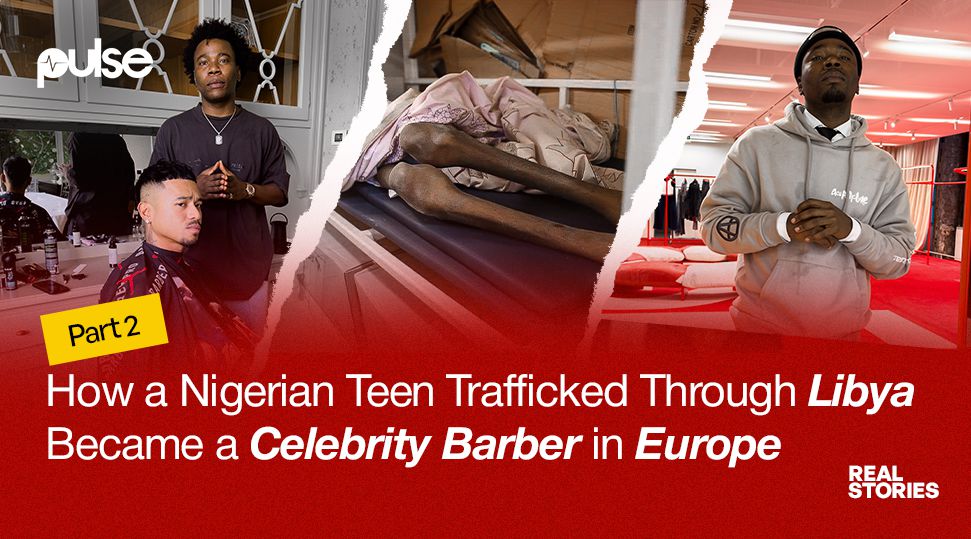
In Part 1, we met Jimmy Ofuoyan, a young boy from Benin City whose life was defined by struggle, hustle and survival. Jimmy’s early years were filled with the painful awareness that he needed to escape the cycle around him. He had no formal training, no sponsors, and no real plan, just the raw will to change his story.
And when the opportunity came to leave Nigeria, he took it.
Catch up here: Part 1 of Jimmy’s Story
Part 2: Jimmy’s decision to leave Nigeria
By sixteen, Jimmy was already restless. He started spending more and more nights away, crashing at friends’ places, hanging with people his brother didn’t approve of.
In a city like Benin, that raised red flags.
“Benin was wild back then,” Jimmy said. “Cultism, violence, the streets were mad. He didn’t want me caught in it.”
But Jimmy wasn’t looking to spiral; he was looking for a way out. He dreamed of the UK, of studying abroad, joining the military, building something real from the wreckage of his beginnings. What he feared was being stuck, like the others, trapped in the same hustle loop with no end in sight.
He started reaching out to organisations, NGOs, charities, and anyone claiming to help underprivileged African youth.
“I messaged Caritas,” he remembered, “the one that said they helped Africans without access to clean water and education. I sent them everything. Never got a reply.”
Then came a conversation with Anton, his cousin, but more like a brother. One of those moments where two young men sit under a hot Nigerian sky and say, “We can’t do this forever.”
“Bro, aren’t you tired?” Jimmy had asked. “We need to get out of here. Let’s go to England. Let’s make something of ourselves.”
They fantasised about joining the military abroad. They sent out more emails, volunteered to serve, and offered to work for free. They were ready to pledge themselves to countries they’d never seen, in exchange for a chance at a different life.
But the silence was loud. The world wasn’t listening.
Then Anton pitched a different kind of plan. If they couldn’t fly out legally, maybe they could walk their way to freedom. Literally.
“Let’s take the land route,” Anton said. “We’ll go from Nigeria to Libya. Then from Libya, we cross the sea into Europe.”
“How’s that even possible?” Jimmy hesitated.
But Anton was prepared. He’d done the research. He’d seen the documentaries. Other people had made it. The odds were bad. The road was dangerous. But at least it was a road.
And when all you have is a dream and a deadline, a road, any road, is enough.
Jimmy spent months weighing it all. He reached out to more people, hoping for a legal alternative. Nothing came through. So when the land route became the only option, he said yes.
But dreams like that needed money. And Jimmy didn’t have it.
What he did have, though, was a friend named Harris. Harris came from money. His aunt was some high-ranking official in the education sector. When Jimmy told him about the plan, Harris said he was in.
“We were young and desperate,” Jimmy said. “And Harris could actually get us the funds.”
So they became four: Jimmy, Anton, Harris, and another friend, Junior.
The plan was simple, at least in theory. Get to Libya, then cross the sea into Europe. But no one warns you that the road to Libya eats boys alive.
They got ECOWAS passports. Someone had told them it would make the desert crossing easier. That was a lie. A scam. Just another hustle by people who profit off desperation.
Still, they moved forward.
They left from a park in Benin with buses heading north. The farther they traveled, the more real it became. Northern Nigeria was no man’s land. At every checkpoint, the police already knew that these weren’t tourists; they were migrants trying to reach Libya.
They’d search your bag, find your ECOWAS passport, and start questioning.
“Where are you going?”
“Who gave you this?”
“You know this is illegal, right?”
But it wasn’t justice they were after. It was cash. Pay the bribe, or rot. That was the rule.
The boys had barely started, and already they were bleeding money. They pushed through, crossed into Niger, and once again, the game repeated itself. The police knew what they were doing. Everybody did. It was one long chain of extortion, passed from border to border like a baton in a deadly relay race.
Then they reached Sabha, a city that marked the final edge of safety. From there, the real journey began…
Don’t miss Part 3 of Jimmy’s story next Friday, only on Pulse.ng.
EXPLORE MORE: Real Stories: I sold my father’s land to japa, now I want to come back home
